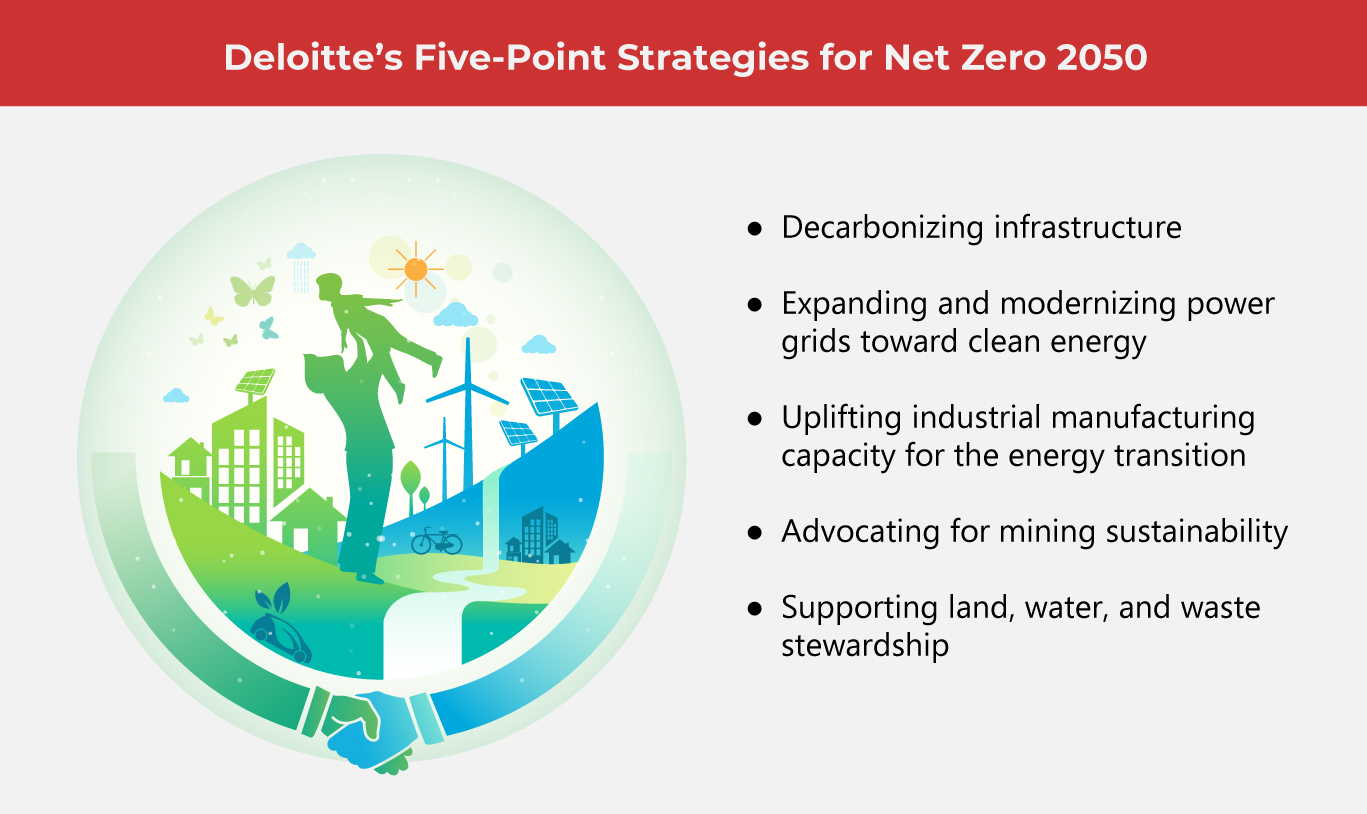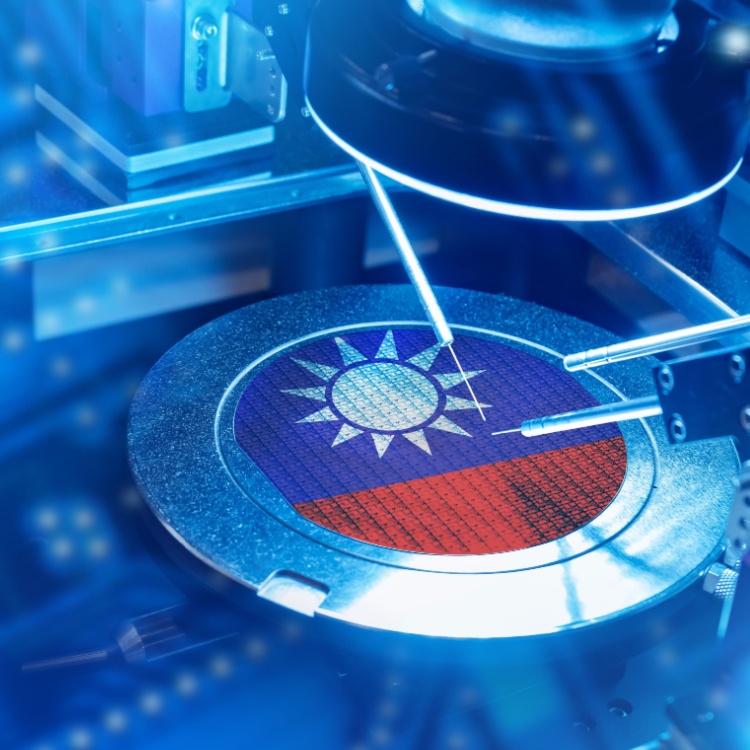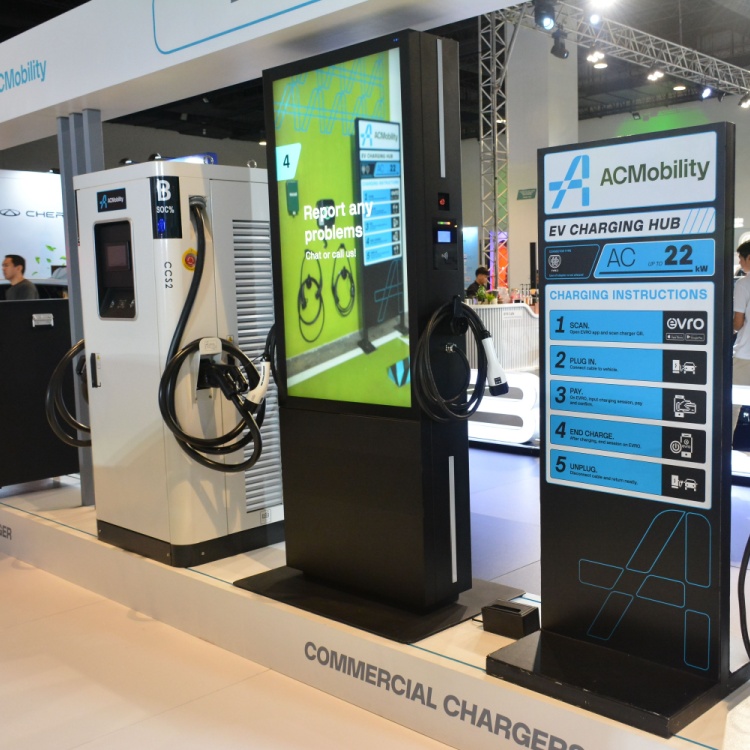Scaling up to Net Zero by 2050

Deloitte’s new report, “Energy Transition: The Road to Scale” draws out five key industrial strategies for achieving Net Zero by 2050.
The world is hurtling towards a critical future, as the timeline towards achieving carbon emission reduction goals gets shorter and shorter by the day.
The report from Deloitte outlines a straightforward roadmap for industries on how to scale changes that need to be implemented sooner rather than later.
The emphasis of the recommended strategies is on scale, collaboration, and innovation across multiple sectors, entities, companies, and individuals.
(Also Read: 7 Ways to “Green” Your Business)
Decarbonizing Infrastructure
The three principal carbon emitters, whether direct or indirect are industries, buildings, and transportation at 40%, 39%, and 20% respectively.
The report recognizes that while developing low-carbon assets is vital, scaling the decarbonization of existing infrastructure needs to be prioritized. The current infrastructure for transport, buildings, and industries should be primed to support decarbonization on a massive scale.
The call for this radical shift is urgent. The report shows that each year’s delay in carbon reduction incurs US$150 billion in incremental costs. This means that companies bleed out money every year that they put off decarbonization for their businesses.
Scaling up decarbonization for industries, buildings, and transportation will take three phases that concentrate on asset, system, and cross-system transformation.
For industries, this means steps that move forward energy efficiency and electrification, capturing dual waste (carbon and heat) outputs, and cultivating industrial “symbiosis” to maximize resource efficiency of residues or underutilized by-products.
For buildings, it involves retrofitting existing structures with smart energy management and energy-efficient systems, revising building codes to accommodate better energy efficiency in new constructions, and investing in new, sustainable materials and digital design capabilities.
Transportation needs to sustain innovation in material and automotive technologies, scale the EV infrastructure, and provide better and more mass public transportation across land, water, and air.
Expanding and modernizing power grids toward clean energy
Power grid reliability and resilience at affordable levels are vital for grid transformation.
Deloitte’s report says that expanding and modernizing grid infrastructures is driven by global electricity demand and the rapid emergence of new power generation sources, such as renewable sources and distributed energy sources.
The expansion and modernization of power grids also require a multi-phased approach that involves bolstering and transforming the core grid infrastructure to be more dynamic, responsive, and capable of integrating new technologies.
Advanced grid technologies will allow for better visibility and control. Upgrading sensors throughout the network, adding smart meters, implanting automated control systems, and advancing monitoring tools can provide vital real-time data on equipment health and grid stability.
Uplifting industrial manufacturing capacity for the energy transition
Manufacturers play a large role in the Net Zero roadmap. As drivers of the global energy sustainability transition, their responsibility to reduce carbon emissions bears high expectations.
Manufacturers’ phased approach involves asset-level energy efficiency through technological innovation and process integration. It simply means that the concentration is on strengthening and transforming core infrastructures to accommodate data integration and a smart factory approach.
Agility becomes a buzzword to drive this approach forward. Visibility for real-time data fuels better, more efficient, and relevant insights about equipment performance, production metrics, and resource utilization.
Optimized design can accelerate production efficiency and reduce waste. Additive manufacturing plays a key role here because it allows for quick prototyping and small-batch production. This minimizes risks to the supply chain because prototypes can be made on demand.
Advocating for mining sustainability
The demand for mining rare earth minerals for critical electric components such as semiconductors and batteries is reaching unprecedented levels. Ensuring consistent supply and reduced emissions comes into focus.
The Deloitte report says that the transition towards Net Zero needs an estimated US$850 billion in new investments in the mining industry by 2030. The demand for renewable energy has caused a 200% surge in lithium demand, 70% for cobalt, 40% for nickel, and an 8% increase for copper from 2017 to 2022.
Scaling strategies for Net Zero requires a three-phased approach for the mining industry that involves improving the efficiency of production processes. Incorporating advanced planning techniques that utilize tools such as digital twinning, drones, and machine learning may minimize risks brought about by operational uncertainties. These tools also simplify logistics and haul scheduling.
Supporting land, water, and waste stewardship
Management of land and water resources, as well as more responsible waste stewardship are key to scaling transformation.
Food security is dependent on how much land and water resources are managed. The report shows that agricultural production must increase by an estimated 70% by 2050 to feed an estimated 10 billion people.
Water stress is also a concern with more than 50% of the global population experiencing this for at least a month out of every year.
Finally, according to Deloitte, more than 70% of global waste ends up in landfills, with a third of this practicing open dumping.
The tri-phase approach to land, water, and waste stewardship calls for consideration of maximizing land efficiency, optimizing water consumption, and safe and efficient waste management.
A focus on circular economy practices and cross-sector collaborations among industries are vital components of the recommended strategies. As one of the Top 20 EMS companies in the world, IMI has over 40 years of experience in providing electronics manufacturing and technology solutions.
As one of the Top 20 EMS companies in the world, IMI has over 40 years of experience in providing electronics manufacturing and technology solutions.
We are ready to support your business on a global scale.
Our proven technical expertise, worldwide reach, and vast experience in high-growth and emerging markets make us the ideal global manufacturing solutions partner.
Let's work together to build our future today.
Other Blog



